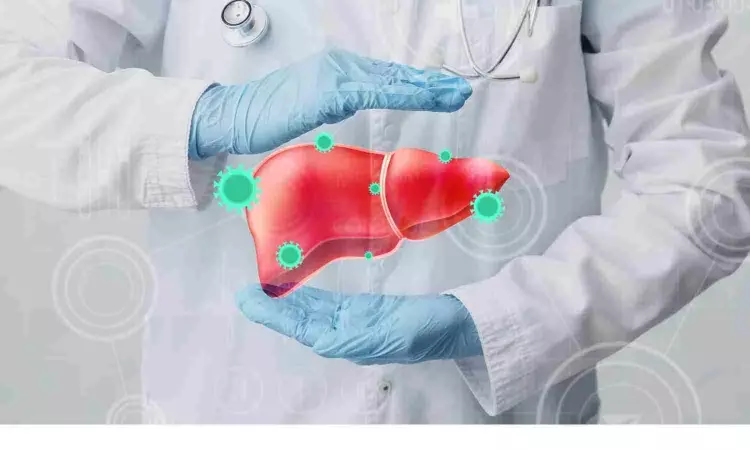- Home
- Medical news & Guidelines
- Anesthesiology
- Cardiology and CTVS
- Critical Care
- Dentistry
- Dermatology
- Diabetes and Endocrinology
- ENT
- Gastroenterology
- Medicine
- Nephrology
- Neurology
- Obstretics-Gynaecology
- Oncology
- Ophthalmology
- Orthopaedics
- Pediatrics-Neonatology
- Psychiatry
- Pulmonology
- Radiology
- Surgery
- Urology
- Laboratory Medicine
- Diet
- Nursing
- Paramedical
- Physiotherapy
- Health news
- Fact Check
- Bone Health Fact Check
- Brain Health Fact Check
- Cancer Related Fact Check
- Child Care Fact Check
- Dental and oral health fact check
- Diabetes and metabolic health fact check
- Diet and Nutrition Fact Check
- Eye and ENT Care Fact Check
- Fitness fact check
- Gut health fact check
- Heart health fact check
- Kidney health fact check
- Medical education fact check
- Men's health fact check
- Respiratory fact check
- Skin and hair care fact check
- Vaccine and Immunization fact check
- Women's health fact check
- AYUSH
- State News
- Andaman and Nicobar Islands
- Andhra Pradesh
- Arunachal Pradesh
- Assam
- Bihar
- Chandigarh
- Chattisgarh
- Dadra and Nagar Haveli
- Daman and Diu
- Delhi
- Goa
- Gujarat
- Haryana
- Himachal Pradesh
- Jammu & Kashmir
- Jharkhand
- Karnataka
- Kerala
- Ladakh
- Lakshadweep
- Madhya Pradesh
- Maharashtra
- Manipur
- Meghalaya
- Mizoram
- Nagaland
- Odisha
- Puducherry
- Punjab
- Rajasthan
- Sikkim
- Tamil Nadu
- Telangana
- Tripura
- Uttar Pradesh
- Uttrakhand
- West Bengal
- Medical Education
- Industry
GLP-1 Receptor Agonists Linked to Lower Risk of Cirrhosis Progression in Early-Stage Metabolic Liver Disease, Study Finds

USA: Recent findings from a cohort study have highlighted the potential benefits of GLP-1 receptor agonists (GLP-1 RAs) in managing patients with metabolic dysfunction-associated steatotic liver disease (MASLD), a common liver condition linked to metabolic disorders such as type 2 diabetes. The study suggests that GLP-1 RAs may significantly lower the risk of disease progression to cirrhosis and related complications.
The researchers, however, noted that the protective benefits were not observed in patients with existing cirrhosis, highlighting the need for initiating treatment earlier in the disease progression. The findings were published online in JAMA Internal Medicine on September 16, 2024.
Metabolic dysfunction-associated steatotic liver disease, formerly known as non-alcoholic fatty liver disease (NAFLD), encompasses a range of liver conditions driven by metabolic disturbances. As MASLD progresses, it can lead to more severe liver damage, including cirrhosis, a potentially life-threatening condition characterized by liver scarring and impaired function. Glucagon-like peptide 1 receptor agonists (GLP-1 RAs) effectively improve liver inflammation in patients with MASLD.
Against the above background, Fasiha Kanwal, Section of Gastroenterology and Hepatology, Baylor College of Medicine, Houston, Texas, and colleagues aimed to assess whether the GLP-1 RAs use is linked to a reduced risk of developing cirrhosis and its complications, such as decompensation and hepatocellular carcinoma (HCC), in patients with MASLD.
For this purpose, the researchers conducted a retrospective cohort study using the Veterans Health Administration Corporate Data Warehouse and Central Cancer Registry data. They focused on patients with MASLD and diabetes treated at 130 Veterans Health Administration hospitals and associated clinics. The study included individuals who initiated either a GLP-1 RA or a dipeptidyl peptidase 4 inhibitor (DPP-4i) between January 1, 2006, and June 30, 2022. Patients were followed until the occurrence of study outcomes or the end of the study period on December 31, 2022.
Each new user of a GLP-1 RA was matched 1:1 with a patient who started a DPP-4i during the same month. Separate analyses were performed for patients with and without cirrhosis at baseline. For those without cirrhosis, the primary outcome was progression to cirrhosis, while secondary outcomes included cirrhosis complications, such as decompensation, HCC, liver transplant, and all-cause mortality. For patients with existing cirrhosis, the primary outcome was a composite measure of cirrhosis complications, with secondary outcomes focusing on decompensation, HCC, and all-cause mortality.
The following were the key findings of the study:
- Of 16 058 patients who initiated GLP-1 RAs, 14 606 did not have cirrhosis (mean age, 60.56 years; 89.1% male), and 1452 had cirrhosis (mean age, 66.99 years; 93.7% male) at baseline.
- These patients were matched to an equal number of patients who initiated a DPP-4i.
- In patients without cirrhosis, GLP-1 RA use, compared with DPP-4i use, was associated with a lower risk of cirrhosis (9.98 vs 11.10 events per 1000 person-years; hazard ratio [HR], 0.86).
- Similar results were seen for the secondary outcomes. GLP-1 RA use, compared with DPP-4i use, was associated with a lower risk of the composite outcome of cirrhosis complications (1.89 versus 2.55 events per 1000 person-years; HR, 0.78) and mortality (21.77 versus 24.43 events per 1000 person-years; HR, 0.89).
- There were no associations between GLP-1 RA use and outcomes in patients with cirrhosis.
"If validated by clinical trials, GLP-1 RAs could hold promise as preventive treatments for cirrhosis and its complications in patients with MASLD and diabetes," the researchers concluded.
Reference:
Kanwal F, Kramer JR, Li L, et al. GLP-1 Receptor Agonists and Risk for Cirrhosis and Related Complications in Patients With Metabolic Dysfunction-Associated Steatotic Liver Disease. JAMA Intern Med. Published online September 16, 2024. doi:10.1001/jamainternmed.2024.4661
Dr Kamal Kant Kohli-MBBS, DTCD- a chest specialist with more than 30 years of practice and a flair for writing clinical articles, Dr Kamal Kant Kohli joined Medical Dialogues as a Chief Editor of Medical News. Besides writing articles, as an editor, he proofreads and verifies all the medical content published on Medical Dialogues including those coming from journals, studies,medical conferences,guidelines etc. Email: drkohli@medicaldialogues.in. Contact no. 011-43720751


